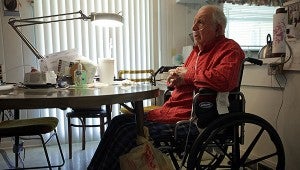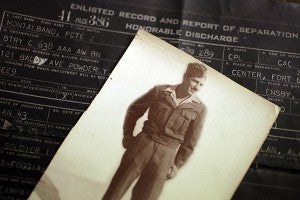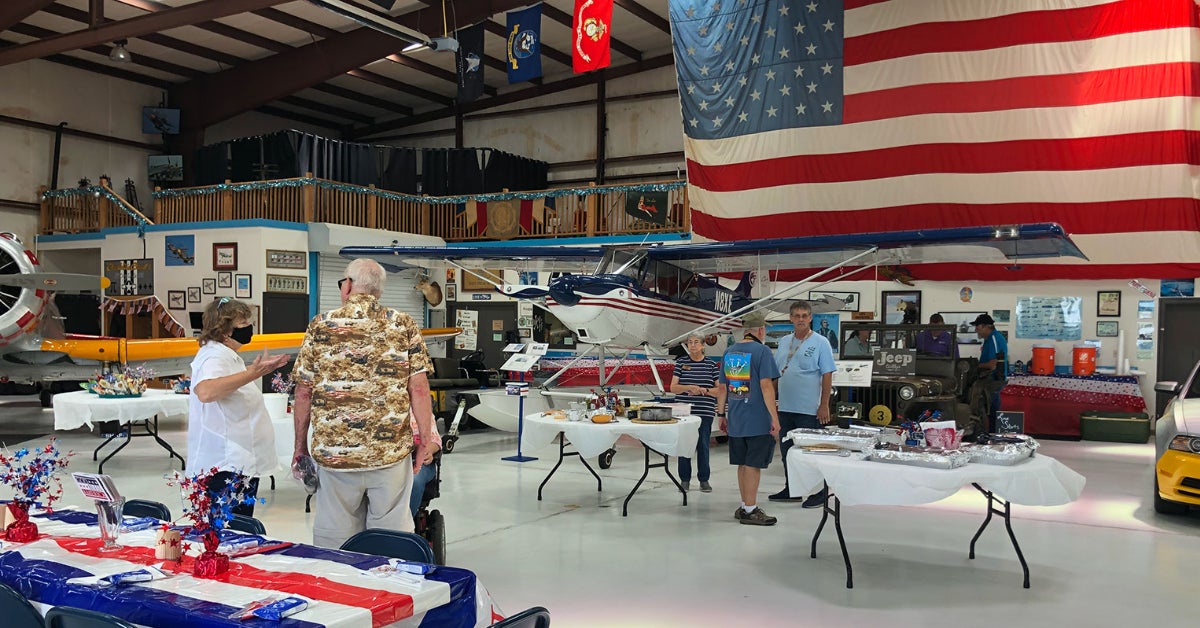One Sacrifice For Another
Published 12:01 am Monday, May 26, 2014
Montalbano left struggling family for service
When Pete J. Montalbano Sr.’s draft notice arrived in September 1943, it was just one of many tough days for his family.

World War II veteran Pete J. Montalbano recounts his experiences during the war Wednesday at his home in Vicksburg. (Justin Sellers/The Vicksburg Post)
His father, Gus, had been wounded in World War I and was at a veterans’ hospital in Birmingham, Ala. He had served with the Dixie Division in France during the Great War. With two younger brothers and his mother, Mary, to support, Pete Montalbano had left high school after two years to work.
“We were struggling to get by and at that time, I was the main breadwinner,” Montalbano said. “I supported my family working in the iron ore mines in Alabama.”
He was able to get a deferment until his brother Tony turned 18. Someone had to work fulltime to feed the family.
“We were just getting on out feet and being able to provide three meals a day,” Montalbano said.
The struggle was nothing new for the Montalbanos. Gus Montalbano was born in Italy, as were Mary Montalbano’s parents, according to U.S. Census records. Neither parent had any formal education.
In the midst of the Great Depression, the family settled in McAlester, Okla., to be near one of Mary’s relatives. Then the Dust Bowl came, wiping out Oklahoma’s agricultural based economy and all the businesses that went along with it.
The family moved back to Alabama where Pete Montalbano eventually went to work in the iron mines when his father became ill.
Pete Montalbano said goodbye to his family in January 1943 and never knew if he would see them again. There was no line of communication home except for letter writing.
Initially his unit was supposed to be providing anti-aircraft support, but their equipment was lost at sea. He was sent to North Africa where he escorted Italian and German prisoners of war to Casablanca, Morocco.
“We were shipping them to the United States, which I found out about 40 years later,” Montalbano said.
While in a convoy between airfields in North Africa, Montalbano severely injured his back when a truck he was riding in turned over because of Nazi gunfire.

World War II veteran Pete J. Montalbano served for about two and a half years in various theaters from 1943 to 1945. (Justin Sellers/The Vicksburg Post)
“The Germans were strafing the convoy, and we lost control of the vehicle and went off the road,” Montalbano said.
Despite his injury, Montalbano returned to service immediately.
“They told me to raise my right arm, raise my left arm, raise my right foot and raise my left foot. Then they said ‘he’s ready to go,”’ he said.
After North Africa, Montalbano was sent to Italy, the homeland of his father and grandparents. While stationed in Italy, Montalbano went to visit his mother’s great-aunt in the town of Turin near the French border.
“They gave me a 24-hour pass, and I extended it,” Montalbano said. “They invited me for supper the next night, and I got to meet all the family.”
Though he got in trouble for sneaking away, Montalbano received a good conduct medal along with three bronze stars for his service.
He said he didn’t remember the actions that earned him the awards for valor.
“I’m not anxious to bring back those memories no how,” he said.
After his enlistment was up, Montalbano went back to work in the iron mines to support his family.





